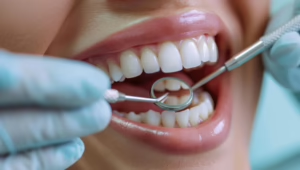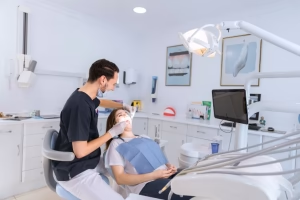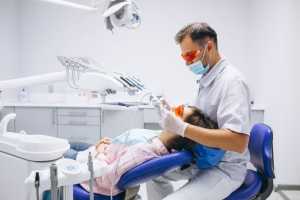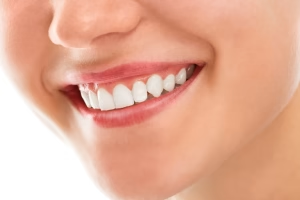Itchy Gums: Main Causes and How to Prevent It
21 January 2022 | Updated: 4 November 2025
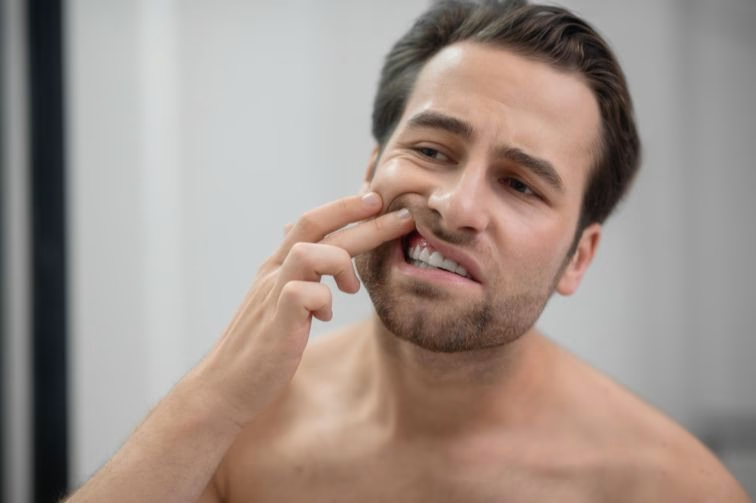
Your gums are the soft tissues that surround your teeth and help keep them securely in place. When they start to itch, it’s often a sign of bacterial buildup in the spaces between the teeth and gums.
While mild itching might seem like a minor irritation, it can sometimes indicate a more serious underlying issue. For example, persistent itching may be linked to a tooth abscess, which could require root canal treatment or even tooth extraction if left untreated.
If your gums itch frequently or continuously, it’s important to schedule a dental check-up. Ongoing gum irritation can be an early warning sign of infection or gum disease.
In this article, we’ll explain the most common causes of itchy gums, what symptoms to look out for, and when it’s time to see your dentist for professional care.
Itchy Gums Symptoms
There are several symptoms associated with itchy gums, which can help in revealing the cause of the problem. The symptoms may include:
- Swelling, aching or pain: this could be the result of a tooth abscess or injury
- Red, inflamed gums: can be a sign of gum disease
- Itching of the palate: can be a sign of an allergy
- Bleeding gums: in this case, the cause isn’t very clear and a check-up to determine the problem is needed
What Causes Itchy Gums?
Itchy gums can be caused by a variety of factors, including plaque buildup, gum disease, allergies, hormonal changes, or poor oral hygiene.
Gum Disease
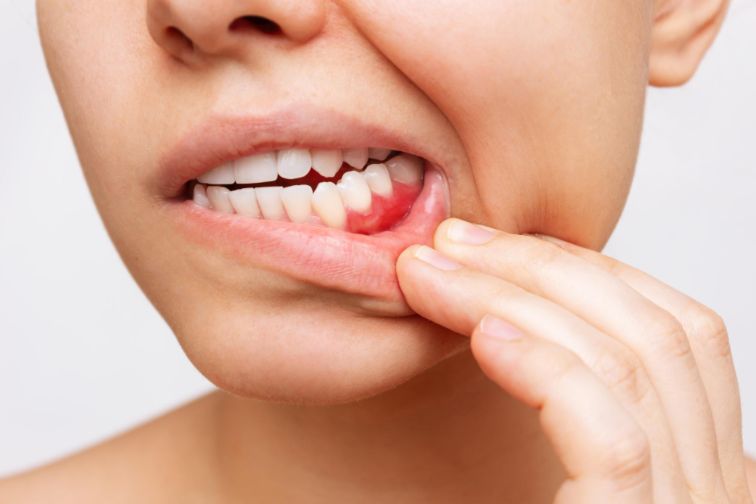
Bad oral hygiene can lead to gum disease, also known as periodontal disease. Itchy gums associated with gum disease can seem insignificant to the swelling and bleeding that occurs.
Gum Injuries
Injuries to the gums or mouth usually cause discomfort or a tingling sensation. Injuries to the mouth can be a result of physical injuries, such as injuries sustained while playing sports. Behaviours such as teeth grinding can lead to injuries and can cause headaches, itchy gums, and jaw pain.
Allergy
A sensitivity or allergy to certain things can cause itchy and swollen gums. Some food or oral hygiene products can be the cause of an allergic reaction.
The most common causes of an allergic reaction are:
- Oral hygiene products with specific ingredients (toothpaste, mouthwash, etc.). Common allergens are always noted on the packaging of these products
- Some foods such as tree nuts, raw fruits, and vegetables can contain cross-reacting allergens, which can cause oral allergy syndrome (swelling of the lips, starchiness in the throat, and itchy mouth and gums)
- Pollen is also a well-known allergen that can cause oral allergy syndrome
If an oral care product recommended by your dentist causes irritation in your mouth or gums, it’s best to consult a medical doctor. They can help determine what you’re allergic to, allowing you to identify and avoid the specific ingredient or product in the future.
Hormonal Changes
Changes in the natural level of your hormones can sometimes cause itchy gums. Women that go through hormonal changes during pregnancy, menstruation, puberty, or menopause may experience itchy gums and can be at a higher risk of getting gum disease. The severity of the itching can be minor or more severe, regardless of oral hygiene.
Plaque Buildup
Plaque is the result of acid-producing bacteria that live on the surface of the teeth and gums. Plaque buildup (gingivitis) can be the first sign of periodontal disease. If too much time passes between brushing and flossing the bacteria can start to irritate the gums, which is one of the first symptoms of gingivitis.
Bruxism
Bruxism, also known as teeth grinding and clenching is a condition where a person unknowingly clenches their teeth because of stress or when they are asleep. The constant friction of clenching the teeth can irritate the gums in areas where the teeth are in direct contact, which causes an itching sensation. Other symptoms of bruxism can include ear pain, jaw or TMJ (temporomandibular joint) pain, or worn teeth.
Canker Sores
Ulcers or “canker” sores can be the cause of itchy gums. Ulcers are a type of sore that appears on the inside of the mouth. They can be very painful if they come into contact with food while eating, or while brushing or flossing. Ulcers aren’t a big problem and last for a couple of weeks. However, if they persist longer than a couple of weeks it is recommended to visit your doctor or dentist.
Dry Mouth
A dry mouth (xerostomia) occurs when not enough saliva is produced to keep the mouth lubricated. This can allow common irritants to irritate your gums and oral mucous membranes more easily. A dry mouth often results in a burning and itching feeling in the mouth. A dry mouth can be easily treated with an increased water intake. Other products such as supplemental moisturizing drops or toothpaste and mouthwash designed for xerostomia can be used to moisturize the mouth if dry mouth persists.
Viral Infections
Viral infections can cause itchy or tingling sensations as ulcers start developing. Treating these kinds of sores can be done with over-the-counter prescription antiviral medication, which can shorten the duration of the outbreak.
Dentures
Dentures and other dental devices that don’t fit snugly can cause itching problems. While eating, if there is a gap between the dental device and teeth, food can find its way in. Bacteria can start to grow and an infection may happen. This can cause itchy gums, inflammation, and sensitivity.
How to Treat Itchy Gums

There are several ways to treat itchy gums, depending on the underlying cause. Some remedies can be done at home, while others require professional dental care. With the right care, whether at home or in the dental chair, itchy gums can be treated quickly, restoring comfort and protecting your long-term oral health.
Home remedies
Home remedies are simple yet effective when practiced consistently. The foundation of healthy gums is proper oral hygiene: brushing and flossing your teeth twice a day helps prevent plaque buildup and inflammation. Pairing this with an antiseptic mouthwash can further reduce bacteria and soothe irritation.
If you struggle to remove plaque from tight spaces, consider using a water flosser for a deeper clean.
Other helpful home remedies include:
-
Rinsing with salt water to reduce bacteria and inflammation.
-
Sucking on ice cubes to cool the gums and relieve itching.
-
Avoiding smoking, as it can irritate gums and worsen oral health.
Professional Dental Treatments
If home care doesn’t solve the problem, your dentist can recommend targeted treatments based on the cause:
-
Antihistamines: help if gum itching is caused by allergies.
-
Teeth guards (night guards): protect against teeth grinding while sleeping.
-
Plaque scaling: removes tartar and plaque that can’t be cleaned with a toothbrush.
-
Root planing: smooths the roots of teeth and removes deep tartar buildup, allowing gums to reattach to healthy tissue.
-
Laser treatment: effectively removes plaque and bacteria and may be used alongside scaling and root planing for better results.
If your gums feel irritated, swollen, or constantly itchy, don’t ignore the signs – it could be an early indicator of gum disease or infection. The sooner you act, the easier it is to treat and prevent further complications.
At MGA Dental clinic, our experienced dentists provide comprehensive gum care and professional cleanings to eliminate plaque buildup, treat inflammation, and restore gum health. Whether your symptoms are mild or persistent, our team will identify the cause and create a tailored treatment plan to bring you lasting relief.
Schedule your visit today at MGA Dental Gold Coast or MGA Dental Brisbane – trusted local clinics for professional gum treatment and lasting oral health.



